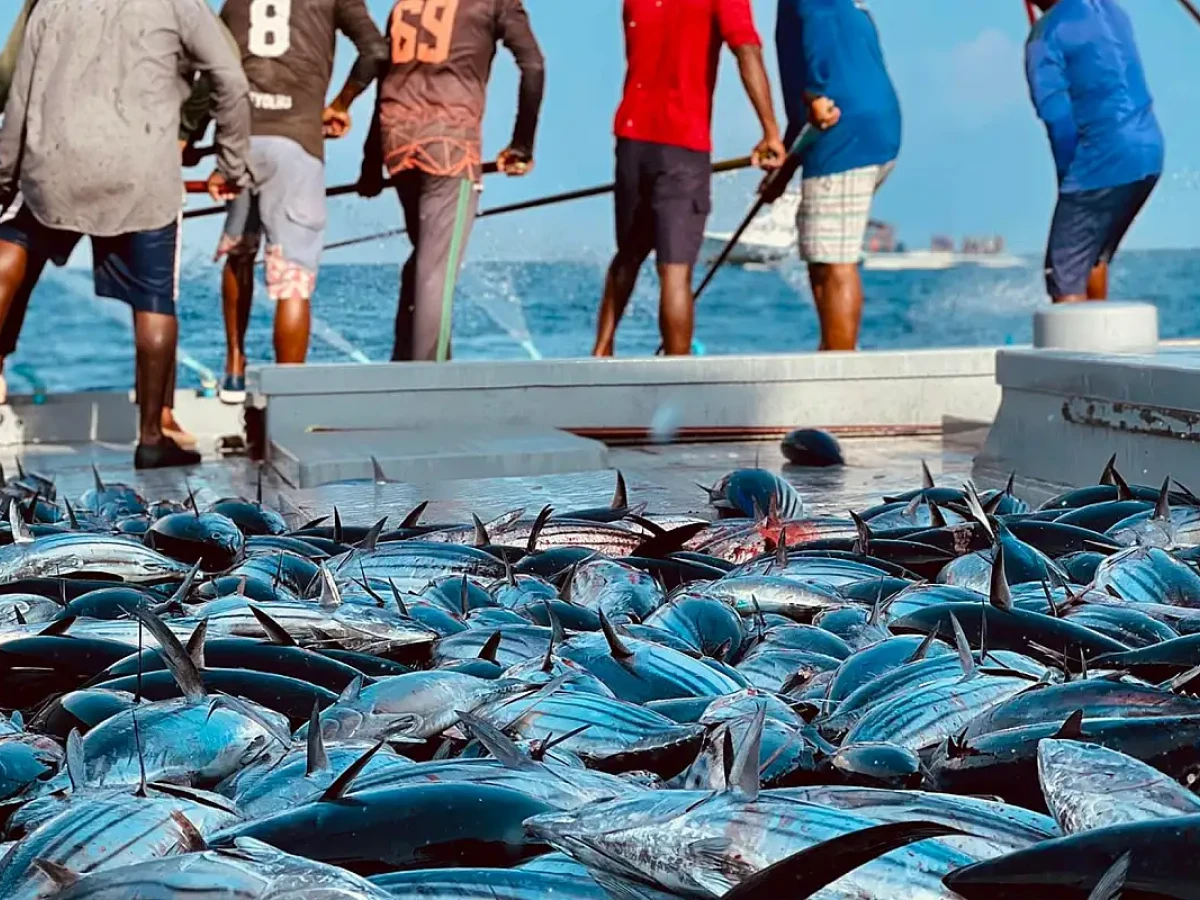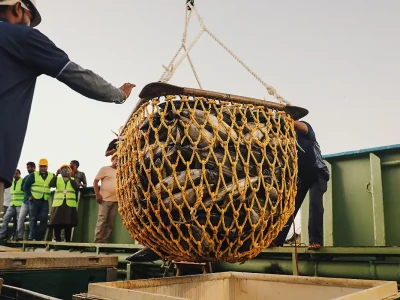
Fishermen struggle amid unusually low season
The Director General of the Ministry of Fisheries, Dr Hussain Sinan said that this fishing season is affected by three major factors.
Top Stories
-
Parliament approves Riffath's appointment to Elections Commission
-
Woman ordered to pay damages over unproven abuse claims
-
Aflah accused of repeated sexual assault of minor over 2 years
-
Ministry to assess repairs at Sinamalé, Malé Hiyaa flats
-
Authorities asked to probe blasphemous insults in TikTok live
By
Aishath Fareeha Abdulla
Some fishermen have said that they have to reduce their fishing trips due to the declining catches.
Due to the decline in fishing during this period, the number of fish bought by MIFCO has decreased and the production of canned fish has decreased as well, the company said on Tuesday. Fish products such as Rihaakuru and smoked fish have also been difficult to obtain from MIFCO shops.
Some fishermen who buy fish from the fishermen and sell it in the market also say that it is difficult to get tuna to sell due to the low fishing during these days.
Hassan Zareer, a fisherman from Gaafu Dhaalu Fares-Maathoda, said on Wednesday that although the fishing season is low, he has never seen such a low season in his life.
"I am now 56 years old. I don't remember a time when fishing was so bad," Zareer said.
He said he has not been fishing for six months now due to lack of fishing. Zareer was reef-fishing in a dinghy when he spoke to Atoll Times.
“I don't go fishing because it doesn't make enough to even cover my weekly expenses,” said Zareer, who works in a large tuna-fishing vessel with a crew of 30. "There was no sign of fish when we checked with modern equipment," he said.
According to Zareer, although a majority of the youth of Huvadhoo have gone out to fish since 2008, the situation is different now.
“Most of our fishing youth now go spearfishing for parrotfish or set traps to harvest lobsters, because tuna fishing has declined so much. That will give them an income, right”.
'Costs are not met'
Adam Faarish, a fisherman from Laamu atoll, said the cost of fishing does not match the income generated by the fishermen in terms of the current price of fish.
“The amount we have to spend on fuel is high,” he said.
According to Faarish, it would be difficult for an average sized boat to cover the costs if it does not catch 3 or 4 tonnes of fish a day.
"For example, even if you get MVR 45,000 for 2 tonnes, when you divide the money among the 20 or 25 of the crew in the fishing boat, the fishermen get a small amount each. Fishermen don't go out because the income they earn does not meet costs”
Zareer from Fares-Maathoda also said that costs are not covered unless at least two tonnes of fish are caught a day.
"We spend MVR 15,000 a week for food on the sea. If the fishing is good, we burn 15-16 barrels of oil a day. Otherwise, we burn 10 barrels. So assessing the costs of these trips, fishing will not make ends meet now”.
However, he said some boats have now started fishing after not going fishing at all.
"This is what they do to feed their families and their wives and children. They have no other choice but to go out in the hopes of catching something," he said.
Low season linked to El-Nino and low baitfish availability
The Director General of the Ministry of Fisheries, Dr Hussain Sinan said that the fishing season is affected by three major factors.
He noted that the fishing industry in Maldives usually declines from April to August every year, and that July is usually the month when fishing is at its lowest.
“Then the fishing starts to improve from August and by December the fishing is very good,” Sinan said.
As a second reason he pointed out that this year is an El Nino year. With the ocean temperatures rising, the amount of food on the ocean’s hot surface level is low. With that, the amount of fish that comes nearer to the surface also decreases, he said.
The third factor, according to Sinan, is that this year marks an unusually low time for baitfish availability.
State-run fish company MIFCO has slashed the purchase price of fish from fishermen. The fish, which was earlier bought at MVR 20 per kg, is now being procured on the basis of the price of fish in the overseas market and the cost of buying and exporting fish, which is a variable price that is decided weekly.
Despite reducing the purchase price of fish, the government has decided not to increase fuel subsidies to fishermen.




